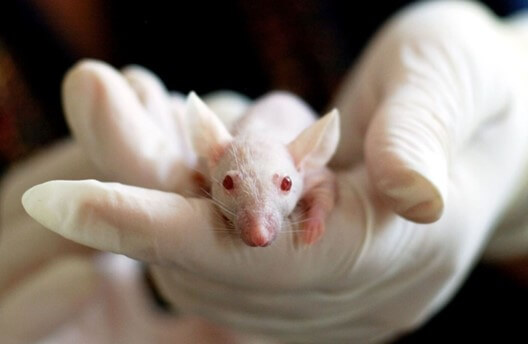Former Cornell Dean Accused of Faking Data in Animal Experiments; PETA Demands That Feds Act
For Immediate Release:
March 21, 2024
Contact:
Tasgola Bruner 202-483-7382
Augustine M.K. Choi, M.D., a former dean and provost and a current professor at Weill Cornell Medicine, has apparently falsified or manipulated data from experiments on animals for two decades, leading to the retractions of nine published studies and the withdrawal of a 10th. PETA is calling for three separate federal agencies to investigate, pull his funding, and prevent him from putting his hands on another animal or taxpayer dollar again. Since some of Choi’s research has led to clinical trials involving human participants, PETA is also raising concerns about protections for them.
PETA is calling on the U.S. Department of Health and Human Services (HHS) Office of Research Integrity to investigate the alleged misconduct by Choi and is urging the HHS Office for Human Research Protections to determine whether the human clinical trials now underway are connected to the allegedly falsified data. Despite the retractions, the National Institutes of Health (NIH), which has provided Choi with more than $71 million in taxpayer money, continues to fund him, so PETA is calling on the agency to ban him from experimenting on animals.
Each of the nine publications that retracted Choi’s work determined that he had either duplicated images representing data from his experiments, spliced images, and/or copied images from previous publications. At least four additional publications have required corrections, and there are concerns about duplicated or manipulated images in several other publications connected with Choi. The papers date back to at least 2002.
Several of Choi’s questionable papers involved painful and traumatizing experiments on live animals. In some tests, experimenters gave mice lethal doses of an infectious agent. Others involved force-feeding mice silica particles and puncturing the intestines of mice to induce agonizingly painful sepsis. Choi and his colleagues have also performed invasive sepsis experiments on baboons who were deliberately given pneumonia—even though it’s been known for a decade that sepsis experiments on animals aren’t relevant to humans. In 2021, PETA filed a first-of-its-kind lawsuit against NIH, which is still ongoing, for continuing to fund sepsis experiments on animals.
“Choi’s behavior is unethical and dangerous,” says PETA neuroscientist Dr. Katherine Roe. “Retraction of his papers is a first step, but now officials should protect humans and other animals, cut off his funding, and release the results of a thorough investigation.”
Choi’s alleged misconduct is just the latest among similar high-profile cases. In the last month alone, five separate experimenters affiliated with Harvard University were caught allegedly falsifying data. PETA has previously called on HHS to increase scrutiny of and penalties against experimenters for research misconduct that involves nonhuman animals.
PETA—whose motto reads, in part, that “animals are not ours to experiment on”—points out that Every Animal Is Someone and offers free Empathy Kits for people who need a lesson in kindness. For more information, please visit PETA.org or follow the group on X, Facebook, or Instagram.



